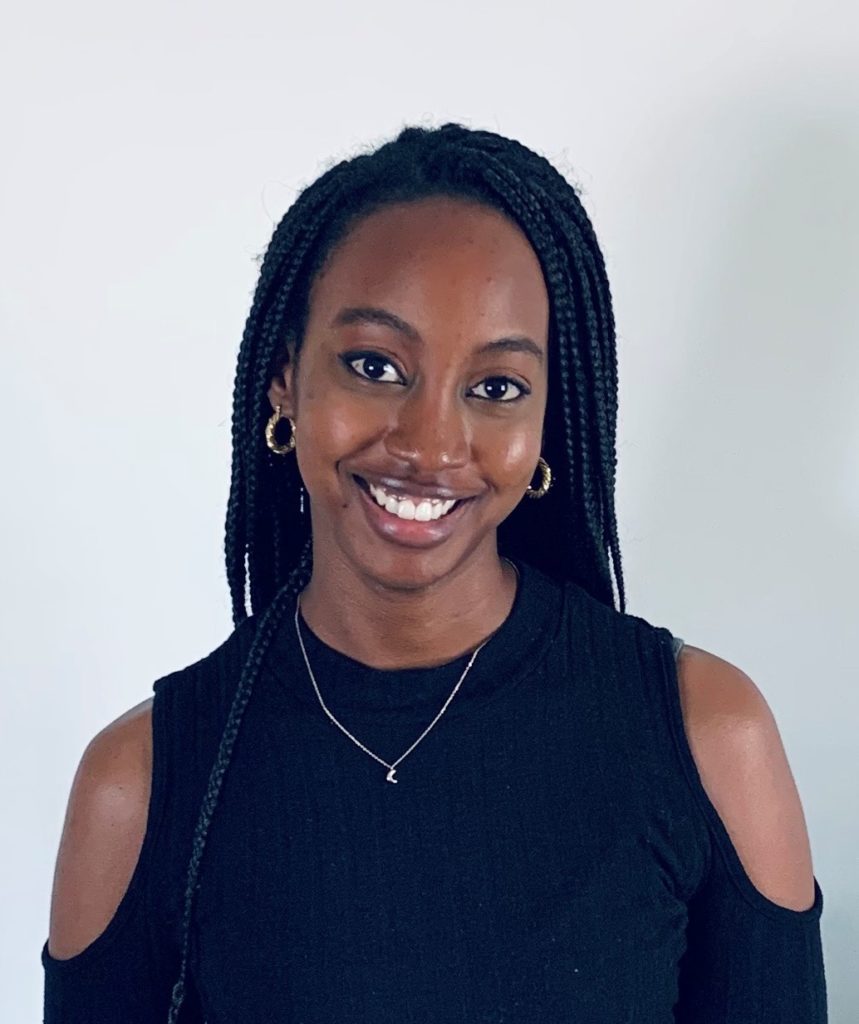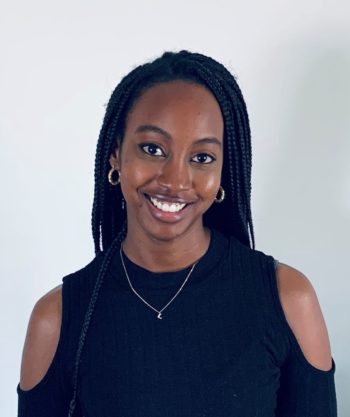
Could you tell me about your childhood? Where were you born? Is there anything about your childhood that stands out for you? Helped form who you are today? Your parents, friends, school?
I was born and raised in Uganda. Growing up, I always remember being very curious and wanting to know more about people, things, etc. Not only did I want to understand why people do what they do, but I was also very eager to provide help and/or support that would positively impact the community, either on a micro-level or macro-level. At the beginning of high school, I picked up interest in volunteering opportunities and community service, and this is what set the foundation for what I do today. My career interests often fluctuated between becoming either a medical doctor or a dentist as I was drawn to helping people. This gradually evolved to becoming a therapist as my interests shifted to understanding mental health and the growing conversations around it. I wanted to be a part of a journey where I could work with individuals to help them recognize their strength, courage, resilience, and most importantly, let them know that their experiences do not define who they are.
I have been fortunate enough to work with individuals from diverse backgrounds, as well as understand some of the systemic barriers that get in the way of accessing mental health services amongst other things. I am grateful for my family and friends who have taken time to understand what I do, as well as support me throughout this journey.
What is your educational background?
I completed my Bachelor of Social Work at Carleton University in 2016. I graduated with my Master of Social Work specializing in Mental Health and Health at University of Toronto in 2018.
Could you describe your job as counsellor with Counselling Connect and Crossroads Children’s Mental Health?
Crossroads Children’s Mental Health Centre is one of the more than 20 organizations whose counsellors offer free sessions with Counselling Connect (www.counsellingconnect.org). As a therapist on Counselling Connect, I provide e-Walk-In sessions to children under the age of 12, caregivers and/or their families struggling with mental health, social, emotional and/or behavioural concerns. During these sessions, we discuss immediate concerns, provide recommendations, and direct families to the services and/or resources that will be able to accommodate their needs. Outside of Counselling Connect, I provide child individual, parent individual or family therapy on an ongoing basis.
What challenges do you face on this job and how do you address them?
There are a handful of challenges that come with the job as there are with any other job. I would say one of the recurring challenges I face is ageism. For example, when I meet new clients, sometimes I will get questions either about my age, background, or comments regarding how I look younger than they had expected.
While this may be taken as a compliment, I feel it can also minimize my achievements especially when there is hesitation from clients around my skills and experience. Besides that, other challenges include getting buy-in from families, managing stress and triggers of the issues at hand, and encouraging/reassuring families that results and positive change takes time, as parents/caregivers are the catalyst for change.
In addressing these challenges, I practice self-reflection and use group discussions with my peers and supervisor as an opportunity to problem solve and navigate these challenges. Essentially, some of these challenges can be deemed rewarding.
The Covid 19 pandemic has affected practically everyone in this country. From your experience, would you say children have been impacted by this more than adults?
Absolutely! Children have had a hard time adjusting to change given the fluctuating nature of the pandemic. First and foremost, most children have had a challenging time understanding the pandemic let alone the impact it has had on their day-to-day activities that were previously part of their routine prior to covid-19. Additionally, previously underlying issues have been magnified by the pandemic due to increased isolation and uncertainty. In the beginning, children had to adjust to the transition from in-person learning to virtual learning, as well as the changes that accompanied it, for example increased screen time due to online learning, inability to physically interact with their friends to maintain safety, wearing masks, and limited recreational and social supports.
A year and a bit later, children are still having a hard time with the transition back to school. There continues to be increased stress and anxiety about being away from home, worries about contracting covid and increased frustration around the social-distancing protocols implemented at school such as keeping a mask on, being in separate zones from their friends, etc.
What do you do to assist and support children suffering from depression, anxiety or any other psychological disorder stemming from the pandemic?
Understanding a child’s perspective and how they make sense of things is important in building a therapeutic relationship and getting them to openly communicate with you. That rapport can be strengthened by validating their feelings and emotions, and normalizing the challenges they are facing. This will help children feel heard and create a sense of calm amidst all the overwhelming emotions. Essentially, we work collaboratively with children and their parents or caregivers to identify triggers, acknowledge feelings and emotions, and develop healthy coping tools and strategies to help manage during stressful situations. We work closely with parents to help them reframe their perspective on their child’s behaviour(s) and focus on skill building, as well as setting clear and realistic expectations while considering their child’s skill set.
How can the Black residents of Ottawa assist and support you in this challenging position?
They can have open conversations about mental health to reduce the stigma surrounding it. Be open with one another. It is also important to note that one does not have to wait until things are overwhelming to seek support, and this is where spreading the word about Counselling Connect (www.counsellingconnect.org) is essential.
Who is eligible for Counselling Connect services?
Anyone is eligible to access a free session from Counselling Connect (www.counsellingconnect.org). It is open to children, youth, adults and families from all backgrounds within Ottawa and the surrounding area. It is an all-inclusive and diverse platform that caters to the African, Caribbean and Black community; LGBT2SQ+; and Indigenous community amongst others. Counselling Connect offers specialized services such as child and family mental health, adult mental health, substance use, gaming and gambling supports. Services are offered in English, French and Arabic.
Can parents refer their children directly to Counselling Connect or do they have to go through the school administration?
Yes, parents can directly book sessions on Counselling Connect (www.counsellingconnect.org) either for themselves or their children. They can choose which service best suits their needs given the various agencies and more than 100 counsellors from diverse backgrounds in partnership with Counselling Connect.
What signs should parents and guardians be looking for in their children, when it comes to depression, anxiety or any other psychological or emotional disorder?
Parents and caregivers can look for significant changes in mood, eating habits, sleep patterns, behavioural issues, level of motivation to engage in activities, self-esteem, engagement in risky behaviour, signs of self-harm or self-injury, suicide ideation etc.
Do you have any hobbies or pastimes?
Yes! I enjoy experimenting in the kitchen and testing out my photography skills. I also enjoy travelling, baking, listening to music, hiking, trying out new recipes and spending time outdoors.
What has been your biggest achievement and what was your biggest challenge? In your work, family life, social life, other?
My biggest achievement is having the opportunity to complete my postgraduate studies among others. I would say my biggest challenge has been continuously navigating my career while keeping an open mind to new opportunities and where I might land.


Hey Stacey hope your well its Kevin Byaruhanga we studied together at Greenhill Academy donot know if you remember me hoping you do looks like your doing well long may it continue. I just wanted to say hi.